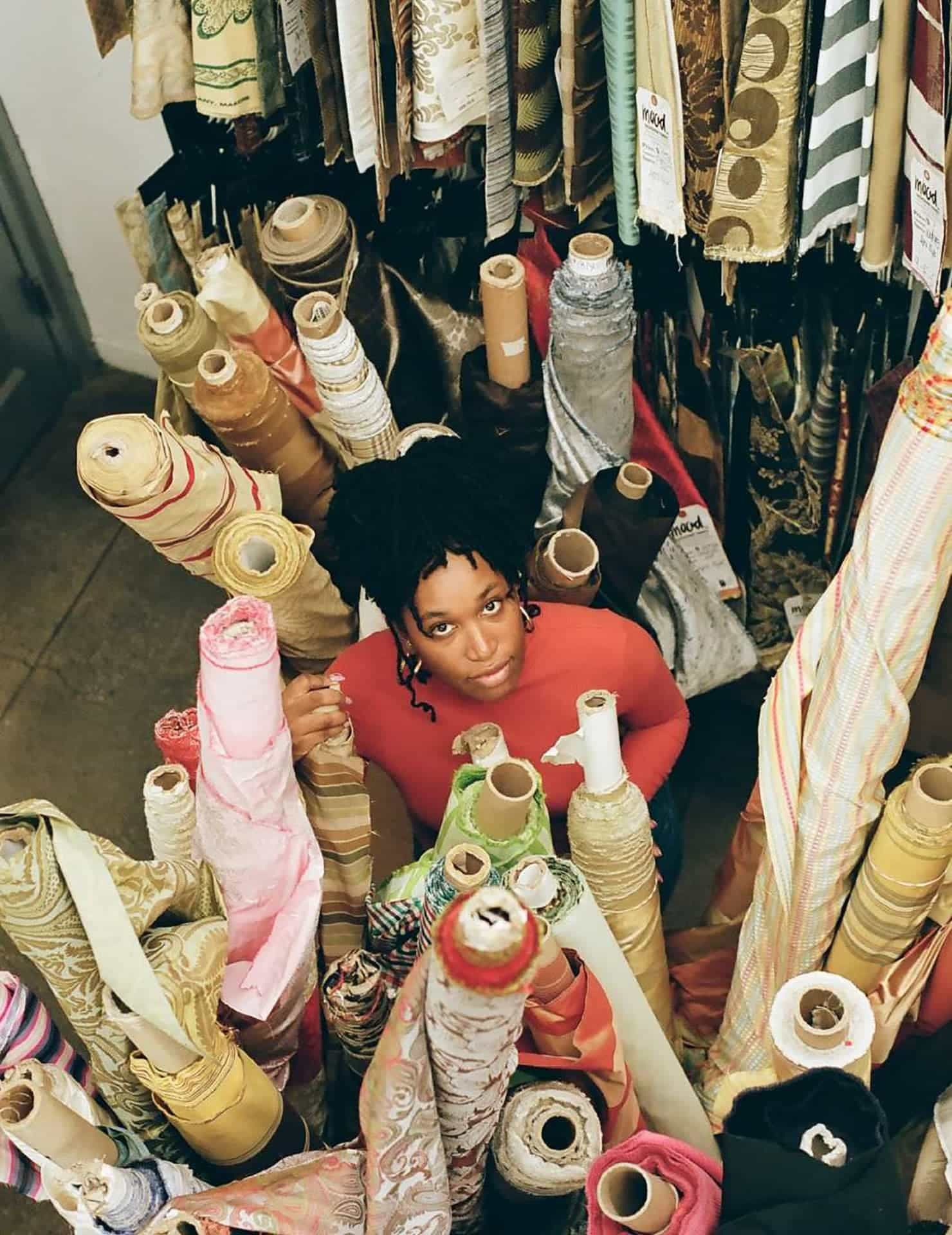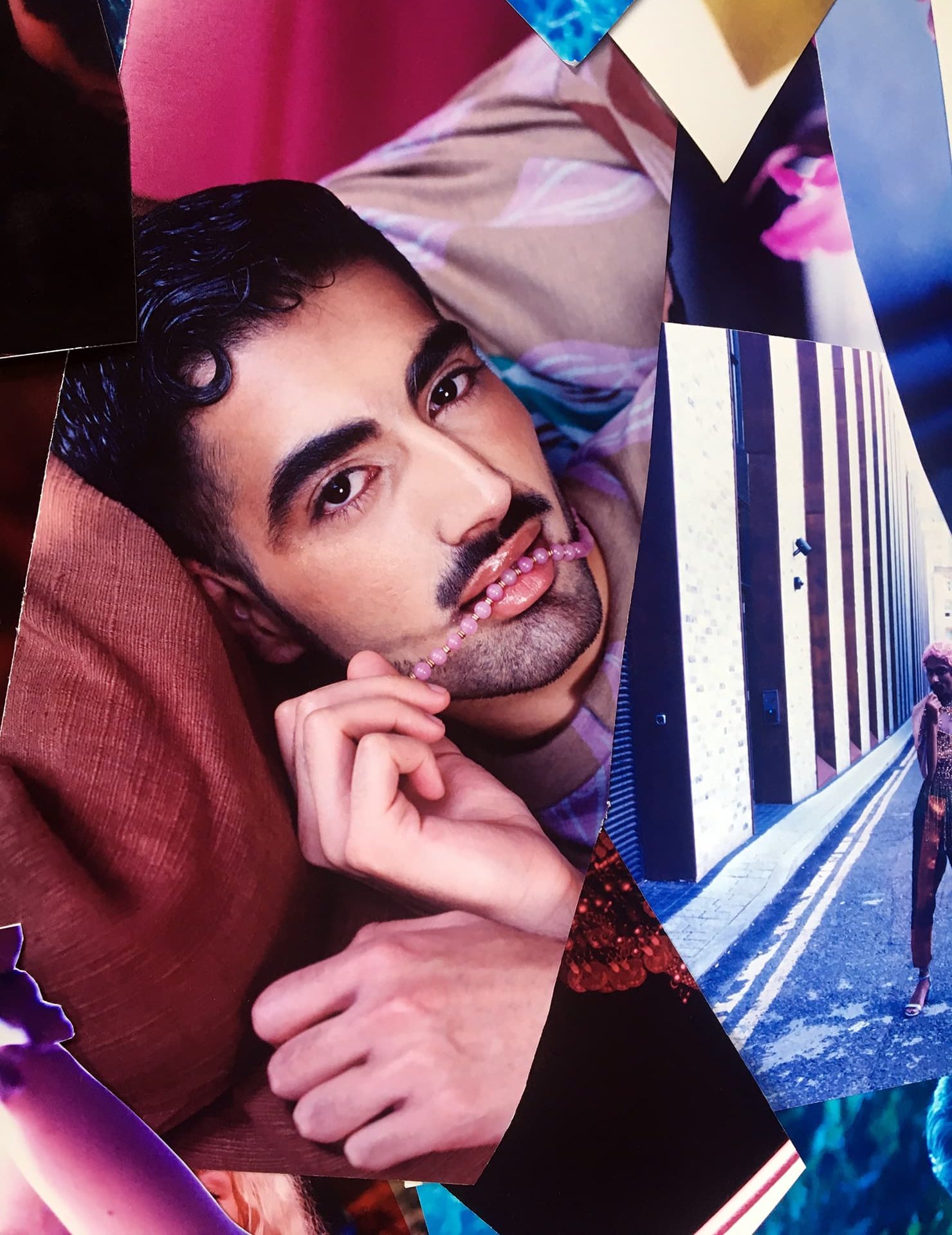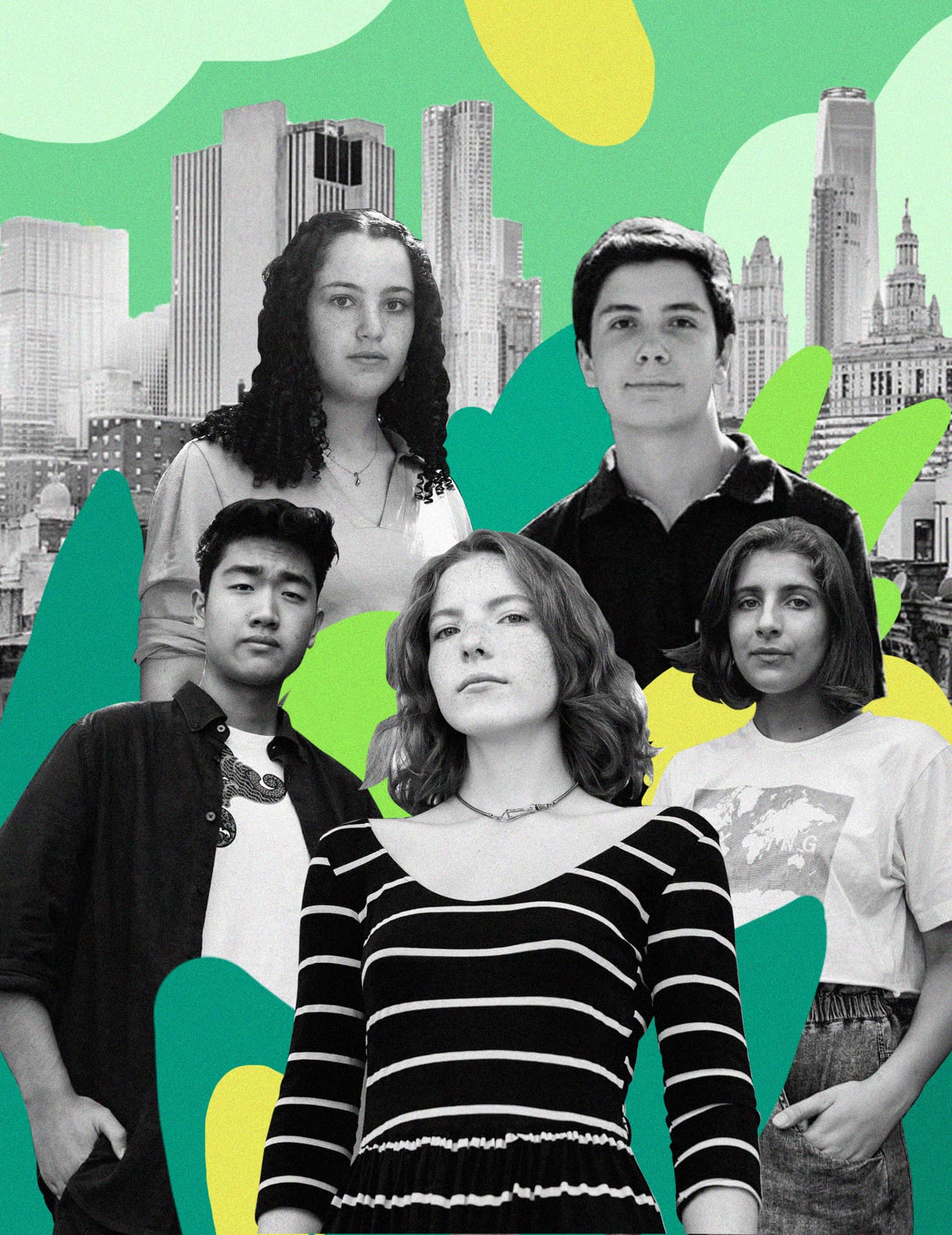On January 18, 2020, thousands of people showed up to Freedom Plaza in Washington D.C. and to 250 sister marches across the United States to demand action on immigrants’ rights and justice, reproductive rights and justice, and climate change and justice. I Weigh caught up with the Women’s March organizers that morning to discuss their movement.
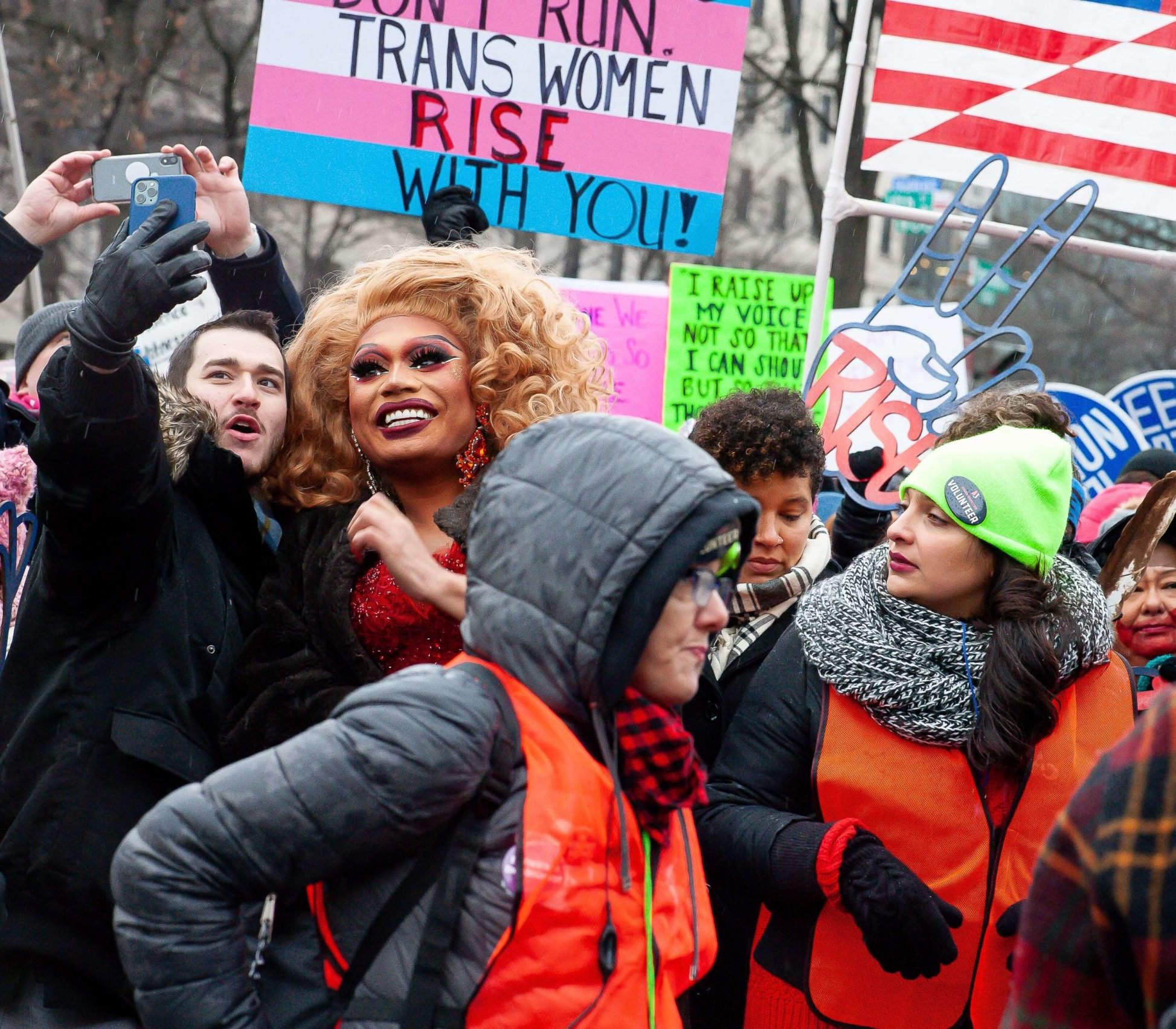
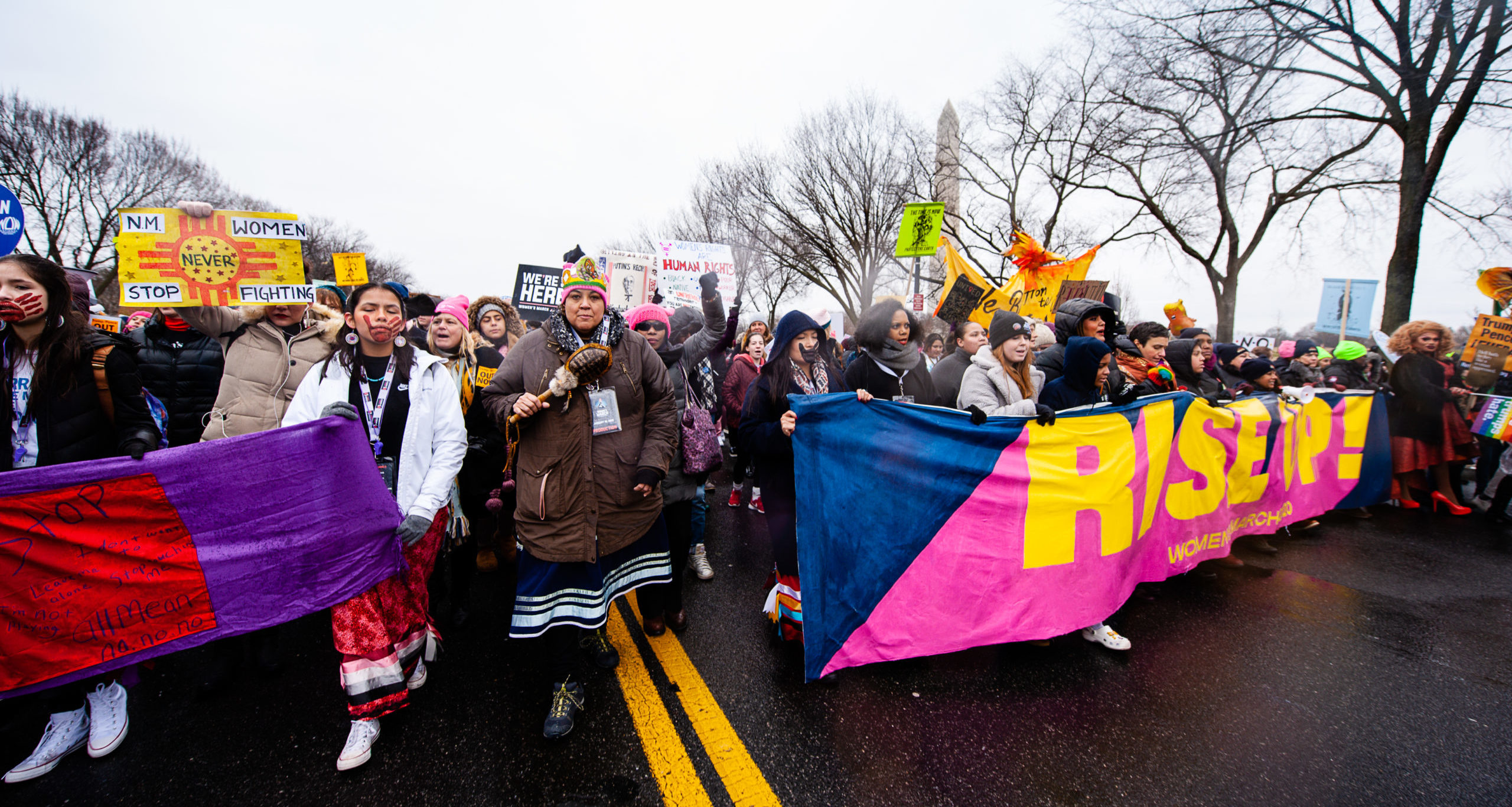
-
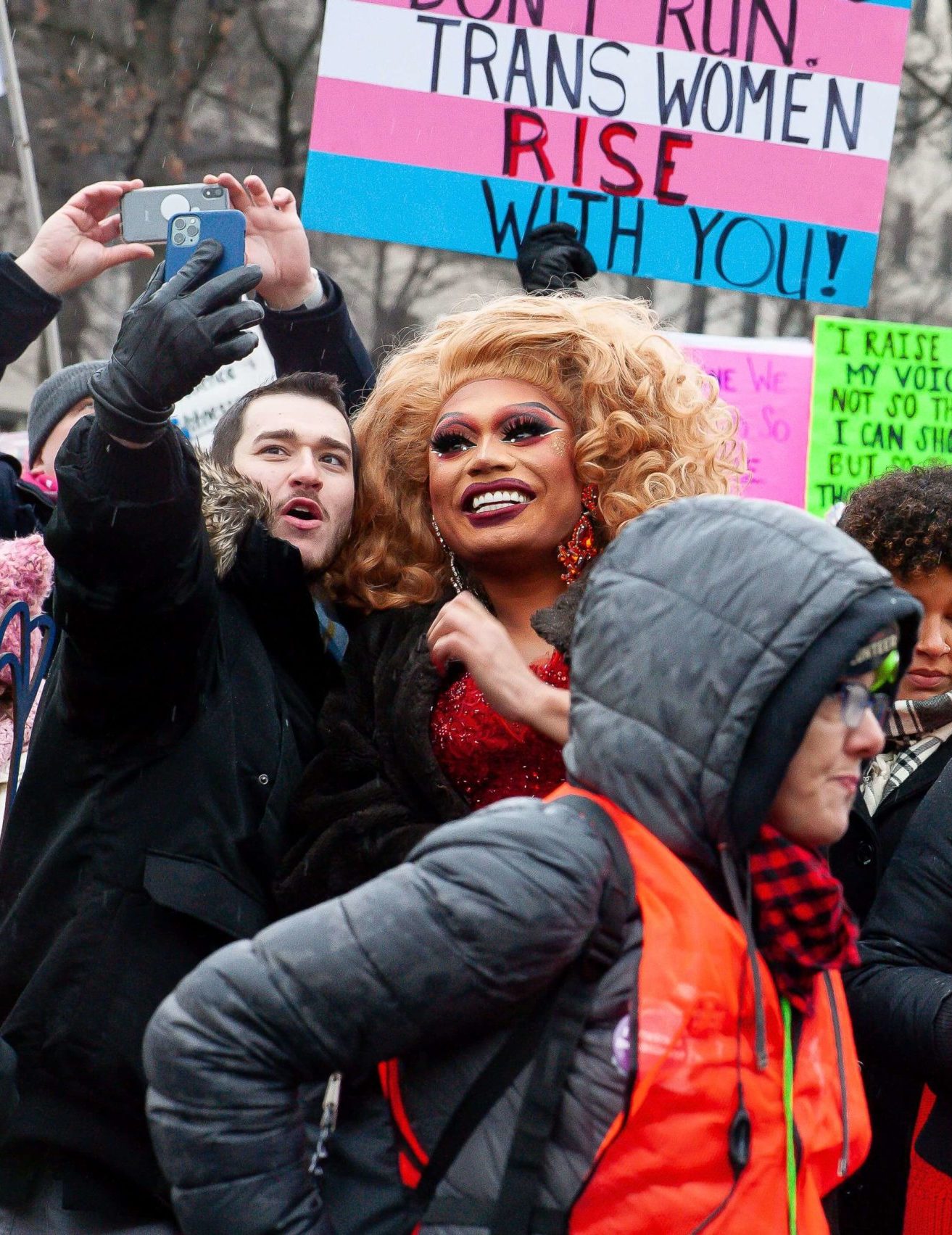
by Marwa Abdou. Freedom Plaza, January 2020
-
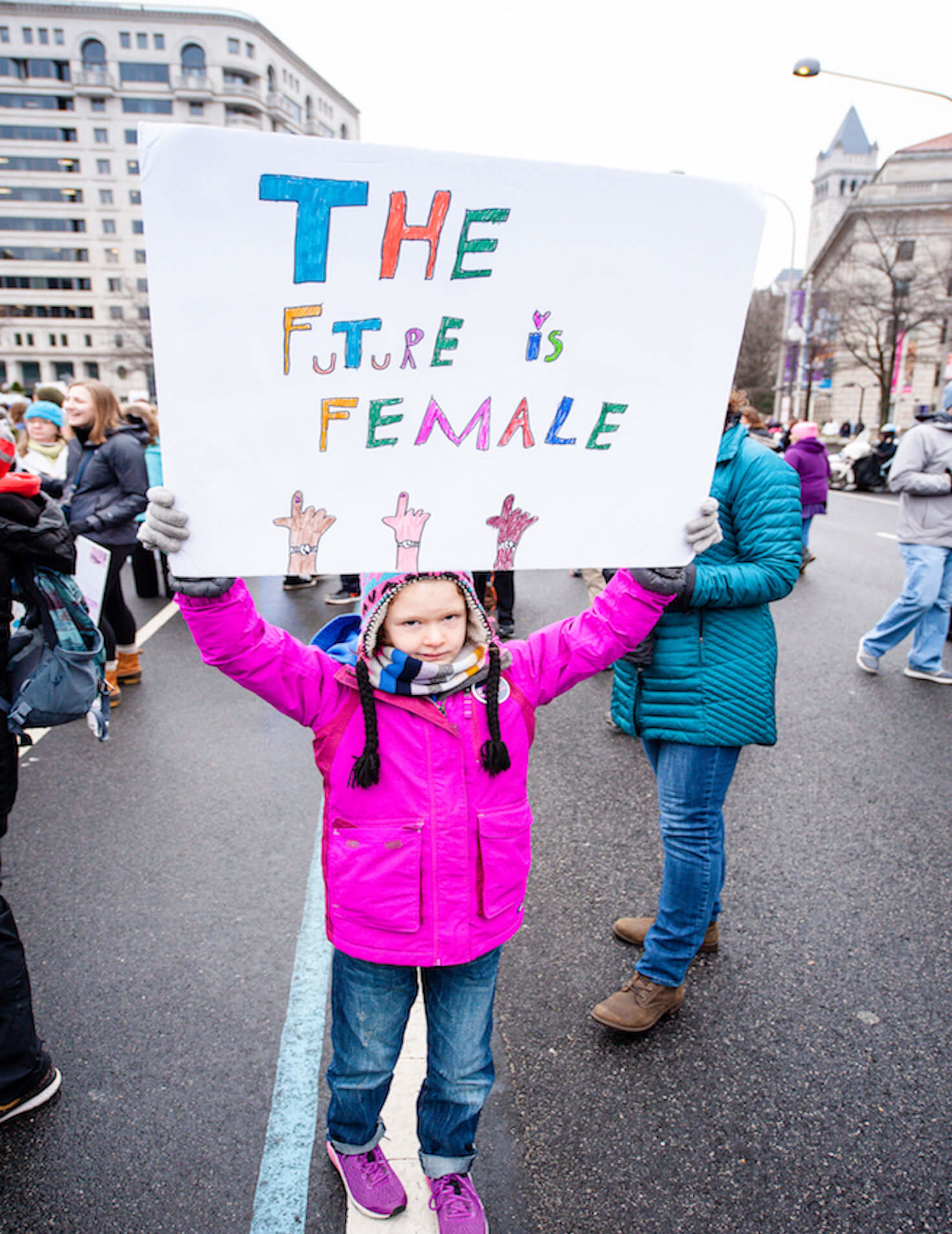
by Marwa Abdou. Freedom Plaza, January 2020
-
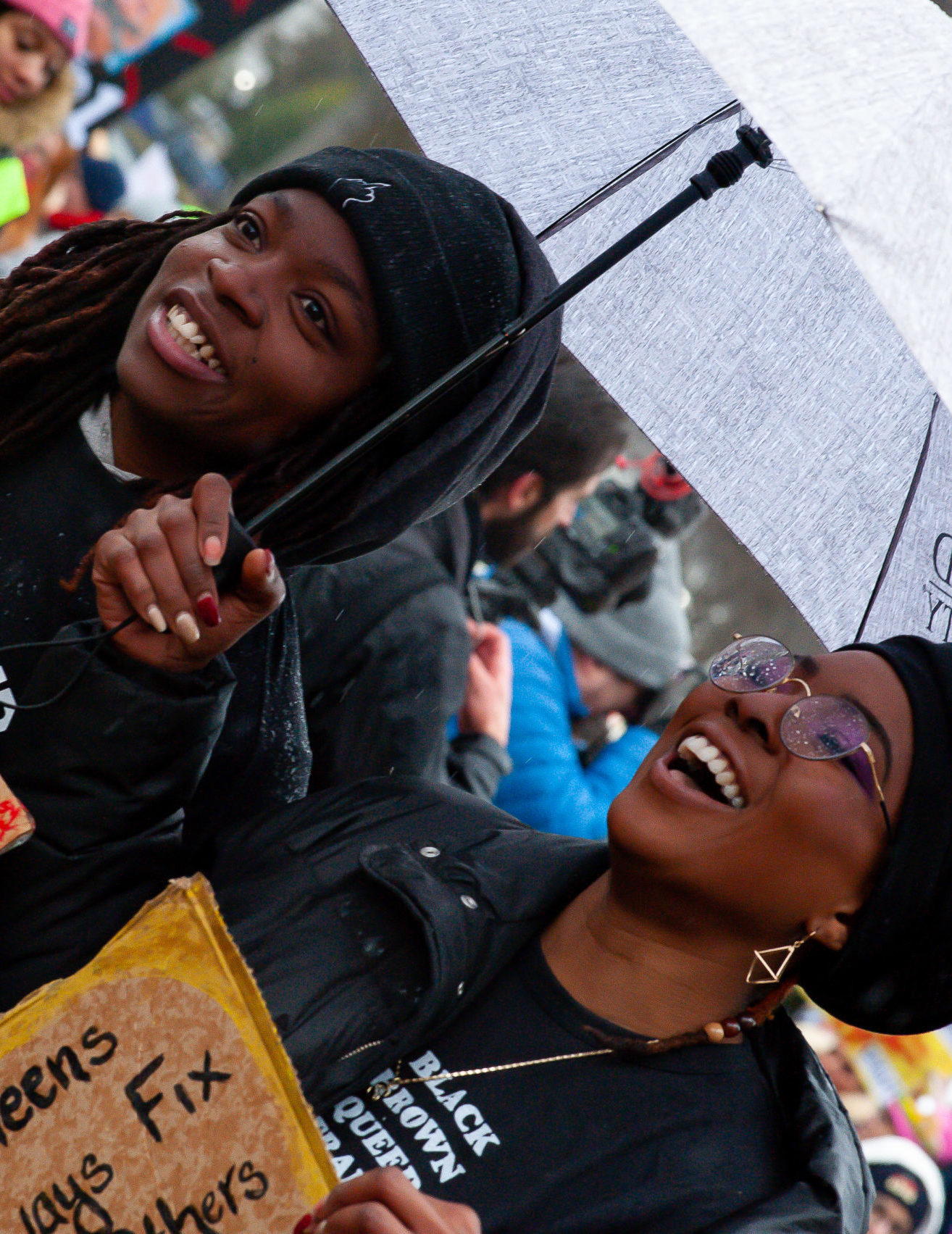
by Marwa Abdou. Freedom Plaza, January 2020
-
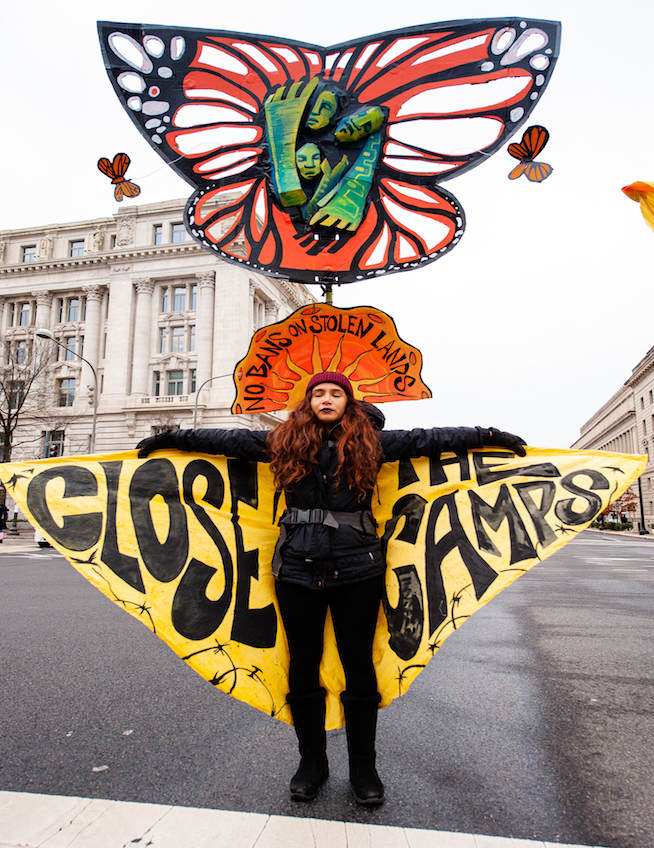
by Marwa Abdou. Freedom Plaza, January 2020
-
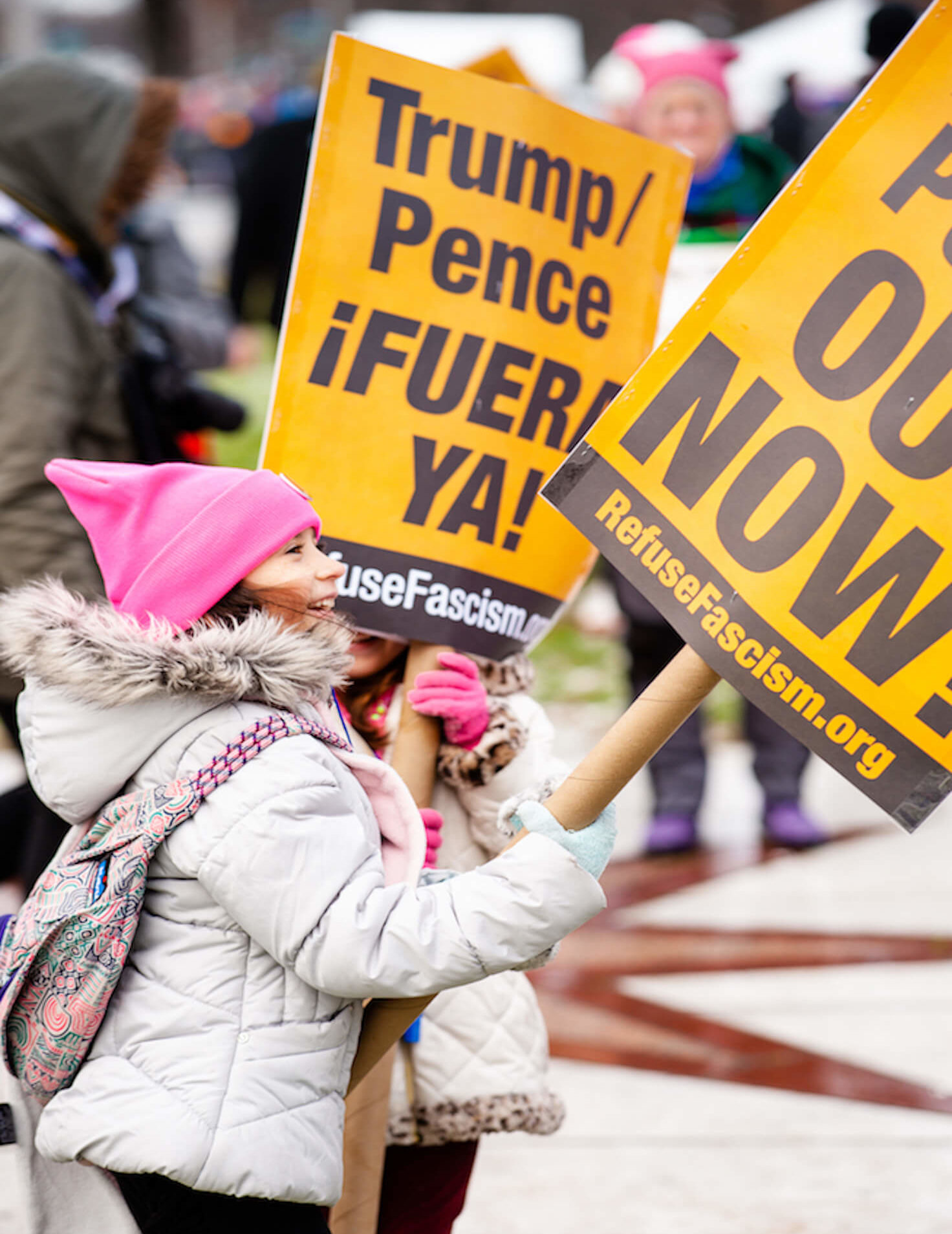
by Marwa Abdou. Freedom Plaza, January 2020
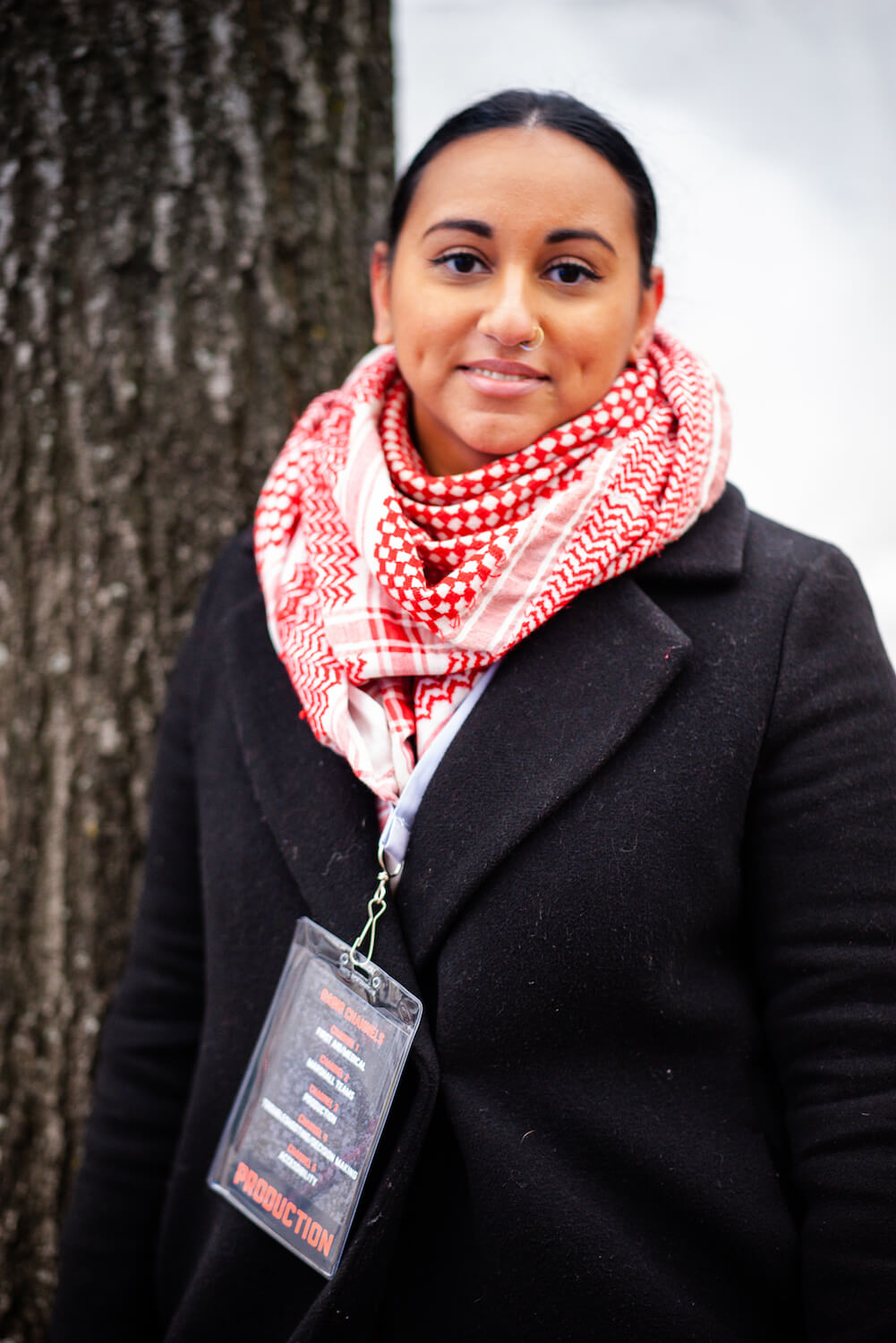
Omaima Khan by Marwa Abdou. Freedom Plaza, January 2020
Omaima Khan
Director of Operations for the Women’s March
On involvement…
I actually was not engaged in the first Women’s March, I sat it out on purpose. I felt like the tone of it, the overall time period of it, Trump had just gotten elected, and for black and brown communities it was just a really difficult time. I felt like the Women’s March was geared more towards white women, who, for the first time, felt targeted or marginalized or that there was enough injustice to take action. And for me, that was something I was just not vibing with.
For the first two years I didn’t feel like the movement really represented me. But I had some overlap with some of the staff members who are here. Our COO (Rachel O’Leary Carmona) is one of my mentors from a few years back and I think after the first couple years there was a shift of leadership that was more focused towards women of color. There was a bit of more active engagement to follow black and brown people in leadership. So that’s when I felt like it was a little more comfortable for me to enter.
For the first two years I didn’t feel like the movement really represented me.
On allyship…
An ally is somebody who acknowledges that they have privilege. Who doesn’t use the guilt that comes from that privilege to insert themselves in spaces or to take actions towards relieving that guilt. But rather if they are using that guilt if it exists, which is okay, they are using it towards the betterment of black and brown people.
I’ve seen white women put their physical bodies in harm’s way to protect black and brown women. The concept of that wasn’t something I was necessarily exposed to before I came into this movement. Also noting that our core base is 75% white and that’s something we can’t ignore, but something to work with. I’m a big believer in black and brown spaces and that we need allyship in order to move forward. Of course there are caveats to all those things. The women that I have met in this movement totally get it, to put it frank enough. I’ve met some really incredible white women allies that I consider family at this point.
On sitting out…
As far as marches and rallies are concerned, I get it. Fatigue is very, very real. While I encourage people to come out, and the ideal is for people to come out, but you feel like you can’t – take care of yourself. There is still activism in non-participation, I truly believe that. Especially for black and brown women because our existence every day is politicalized all the time. So similar to what I did in the first one, sit it out and take care of yourself.
On educating yourself…
I do note that education comes with a privilege itself. We stand here as educated people because we had the means to be able to do that. There are people who don’t have the means or the access to education. But I would note that, specifically for allies, not to turn to black and brown people to answer a lot of those questions, unless you’re paying somebody. Not to syphon a lot of that labor or that energy. Noting that it’s okay to not know, but it’s not okay to expect a black or brown person to do that work for you. I would encourage other allies to teach each other and learn together. And of course, black and brown people are there to give you a temperature check to see if your allyship is okay.
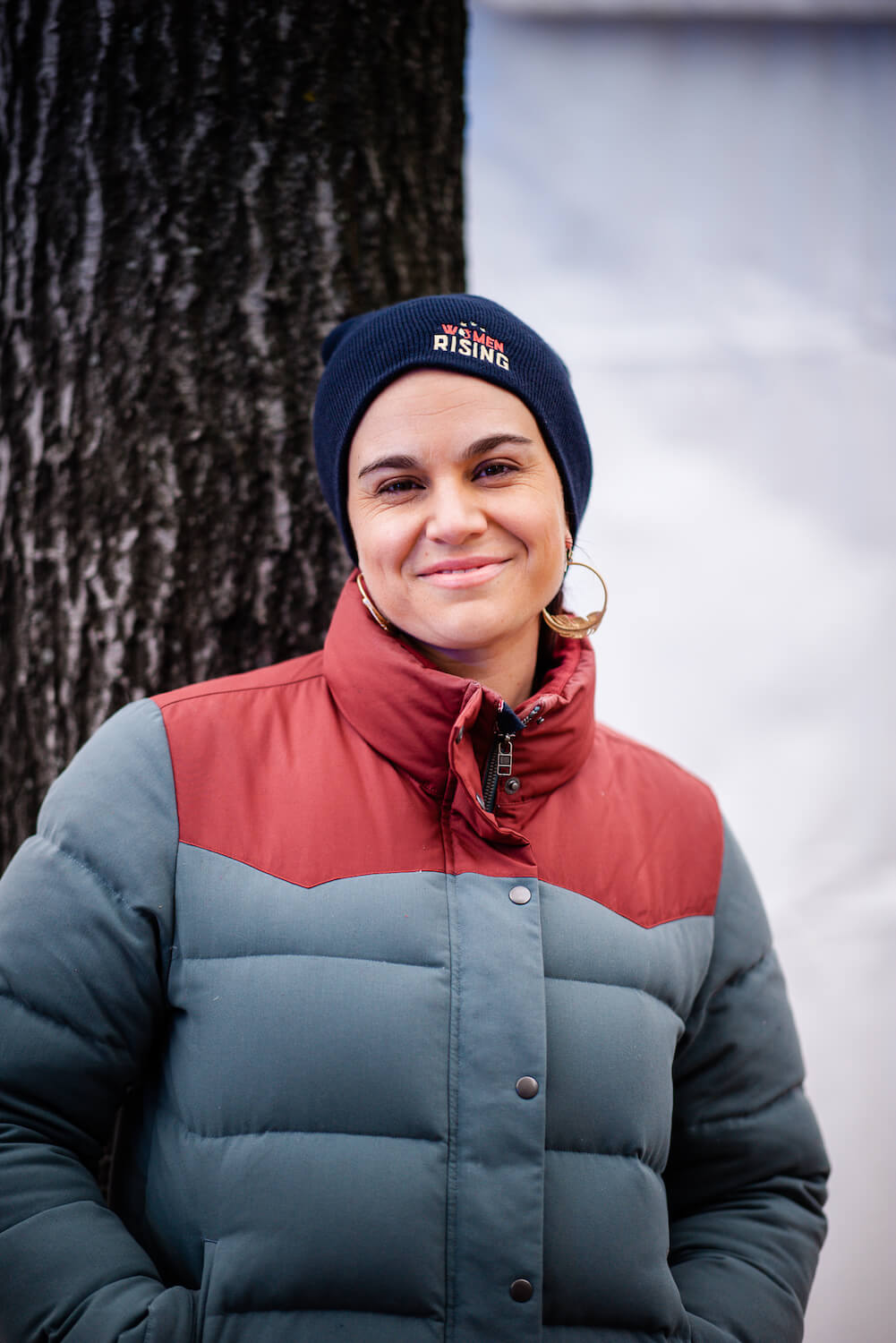
Caitlin Breedlove by Marwa Abdou. Freedom Plaza, January 2020
Caitlin Breedlove
Chief Strategy Officer for the Women’s March
On what it means to march in 2020…
There’s a big change happening in this country, even inside of activism, where people, everyday people, are saying “no, this is ours, this is ours.”
This isn’t about individuals, this isn’t about one charismatic individual leader, this isn’t about brands, this is about building movements. And movements take thousands and thousands and thousands of people to run.
I think that’s the thing about 2020. This is actually about how do we build eachother up, bring our marchers together, and say we’re really listening to the issues that are most important to them and we’re going to be fighting by their side for them this whole entire year.
On the administration…
So many of us are tired, so many of us are demoralized, our communities have been deeply attacked under this administration and so many of us understand what it’s like to not feel like “oh, I have the same ra-ra that I had when Trump became president.”
But it’s even more important that we understand that women, transgender, and non-conforming people are going to be the people to combat Trumpism in 2020 and we need to do it. Nobody’s going to do it for us, that’s what we’ve found under this administration—they’re not coming to save us. We have to do it. Which means we’re going to have to get our spirit up and our morale up. And that means empowering and supporting people on the ground.
Women, transgender and non-conforming people are going to be the people to combat Trumps in 2020
On the media…
When talking to the press and media, I think our request is to remember things have been hard, but also understand that this organization needs to be around. It needed a rebirth to be around. This leadership we are trying to center is about humility and collective leadership. It’s about marathon feminism, it’s not going to be a sprint. It’s going to be boring sometimes and not cute all the time. It’s going to be messy and hard and that’s what it’s going to take.
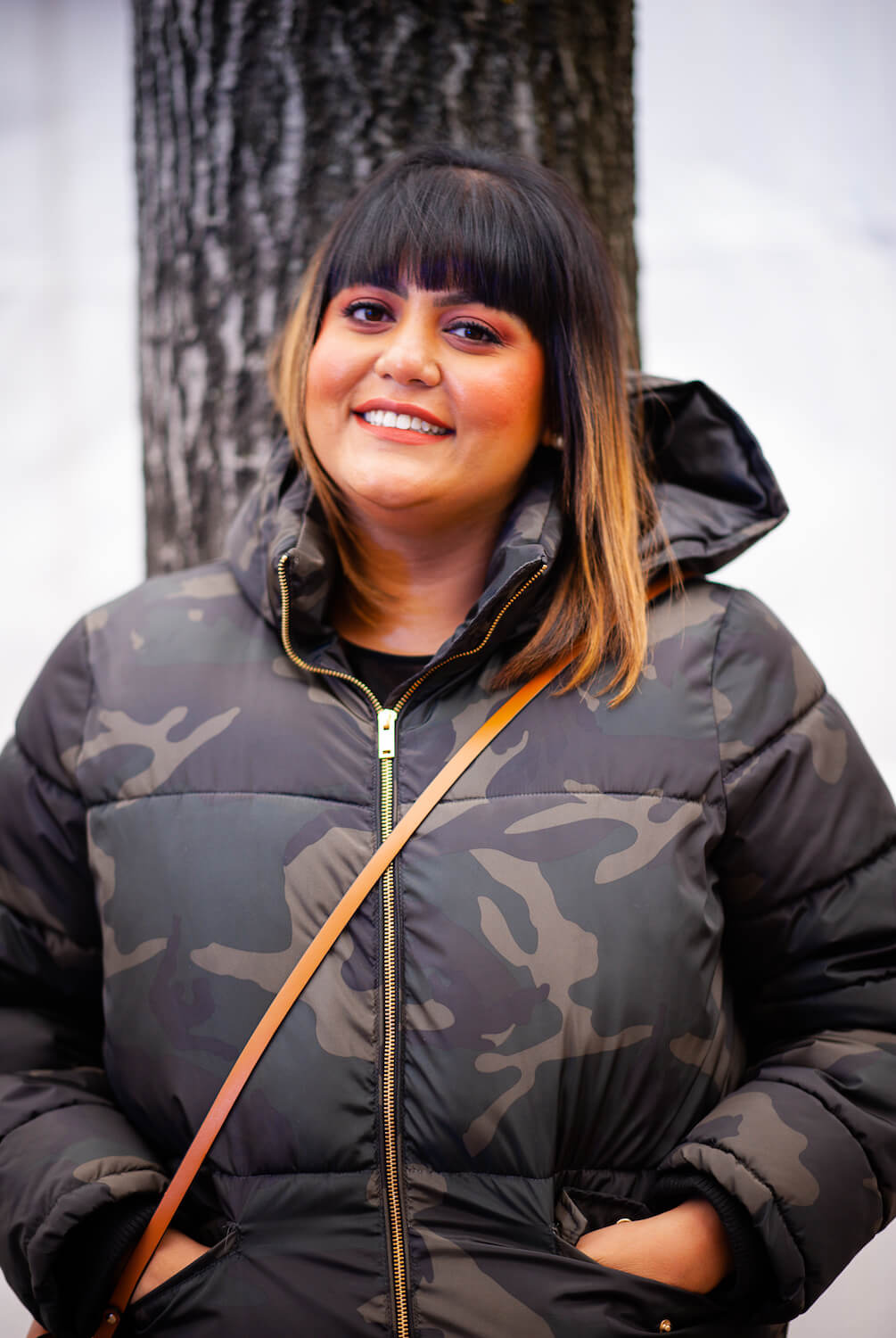
Mrin Chakraborty by Marwa Abdou. Freedom Plaza, January 2020
Mrin Chakraborty
Executive Board Member and Former Founding National Field Director
On this year’s focus…
We are not an organization, we see ourselves more as a convener, more of an umbrella that can bring lots of different issues and people and causes together. This year we have homed in on three specific issues: immigrants’ rights and justice, reproductive rights and justice, and climate change and justice.
We arrived at these areas by repeatedly polling our membership and asking what issues they are most passionate about fighting for and these came up again and again.
On common misconceptions…
I don’t know if it’s just about the Women’s March, but a misconception people also have about feminist movements is that there’s just one particular issue that we are fighting for. Something that Women’s March has been striving to do since our inception is adopt and push forward a radical vision of what an intersectional feminist movement looks like, and being clear that all issues are women’s issues.
A misconception people have about feminist movements is that there’s just one particular issue that we are fighting for.
On legislation…
Last year, for the third Woman’s March, we came together and pushed out a really beautiful, a revolutionary if I may say so, document called the Women’s Agenda. It translates the unity principles that the Women’s March was founded around into policy demands. In it you’ll find policies like Medicare for All, like de-escalation and fighting for peace rather than escalation into war. Fighting for climate change. Those are legislative issues that we have listed out as ones that we are going to put our energy and our movement behind as those legislations come into play at the local, state, and federal levels.
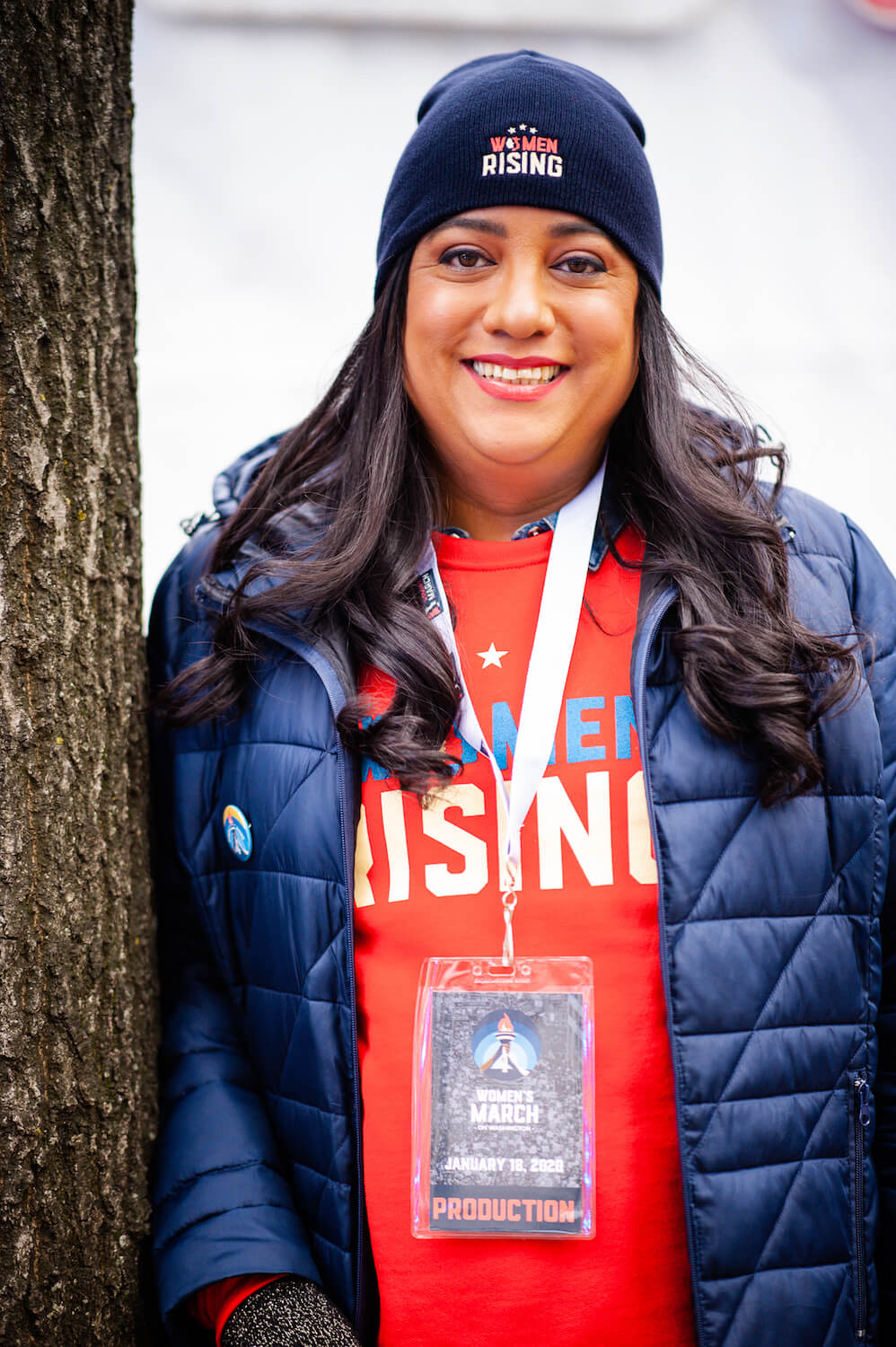
Isa Noyola by Marwa Abdou. Freedom Plaza, January 2020
Isa Noyola
Board Member
On 2020…
There is this level of attitude that we’re not going to take it anymore, you know? And not just here in the U.S., but globally. And I think the Women’s March is a part of that voice. Yes, I think it’s a little complicated to compare what’s happening here with other countries in particular because of the ways the U.S. has caused a lot of unrest around the world. But at the same time, I think there is this sort of call to action and call in people’s hearts to really step up and hold this government accountable and to hold institutions that continue to oppress and criminalize and target our communities in violent ways accountable.
On community support…
This moment is important because we are needing everyone. We need everyone. So many folks are going to come here, hopefully they’ll be inspired, they’ll be challenged. Hopefully they’ll take back this energy to their communities, back to their families, schools, back to their synagogues, back to their churches, and continue to spread that energy in terms of what needs to be done.
We need everyone.
On what keeps her going…
It’s the loss in the community. Both of the murder of trans women and when I go visit detention centers and see the conditions of people locked in cages. Stripped of their humanity, only allowed to go outside for an hour a day in a cage. Those things stick with me and push me. We need to push ourselves in the moment. Yes, it’s cold right now. Yes, it’s early. Yes, we’ve had a long week. Yes, it’s been so much. These moments are important to remind us what’s at stake, they’re important to just humble us in some way. Those folks who have been discriminated against and continue to be targeted, they are the ones facing the brunt of this administration.
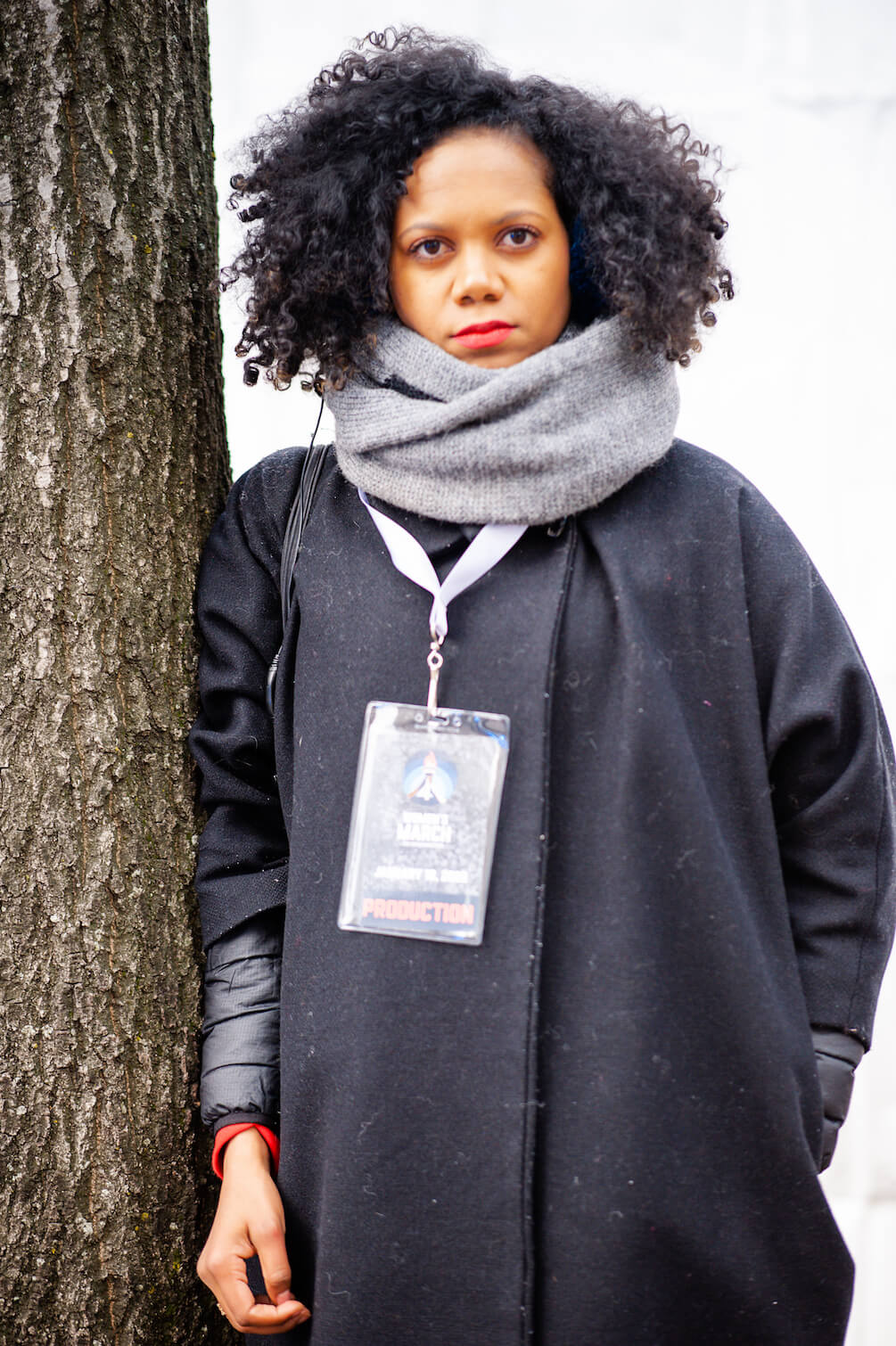
Tabitha St. Bernard-Jacobs by Marwa Abdou. Freedom Plaza, January 2020
Tabitha St. Bernard-Jacobs
Director of Community Engagement
On 2020…
This is the last march before the 2020 election, so we know this will be an opportunity for women to show their power. It’s been three years of this resistance, three years of mobilizing our power and it’s all been building up to this moment. It’s time to push against those in power, and time to take back our power.
On community support…
We have over 250 local marches that are happening all over the country today. And Women’s March would not be what it is without its state organizers. Women on the ground in cities all across this country who are mobilizing within their communities. These women are having the direct conversations and having those difficult conversations that bring us where we are today. It all starts with those conversations, so local organizing is very critical.
On getting involved…
I think that any way people can fit into the movement it makes sense. If you’ve never done any type of activism before and you want to show up to a march, take it a step further. Write to your elected officials. Take it the next step further and maybe organize a chapter. There’s always a way to get involved. Push yourself out of your comfort zone a little bit and see how you can enact change for the entire country but starting on a local level.
There’s always a way to get involved.
On accomplishments…
I think that we have seen more women being elected within positions of power and that’s something we’re incredibly proud of. We hear from a lot of people that the Women’s March has inspired them to be more active within their own communities and that’s where the impact really is for us. I think these marches are a stepping off point and entry point for many other people to get involved.
Contributors:
-
Emily O’Rourke is a contributing writer from Washington D.C. She specializes in lifestyle and wellness content, with her work ranging from editorial think pieces to creative copy. @itsemilyorourke
Photo Credit: Emily O'Rourke
-
Marwa Abdou is a lifestyle, travel and street photographer based in the Washington, D.C. metro area. Her ardent pursuits behind the lens are driven by exploring the spectrums in everyday life and long standing interest in human connection, social justice and vulnerable communities. @myabdouphoto
Photo Credit: Marwa Abdou


